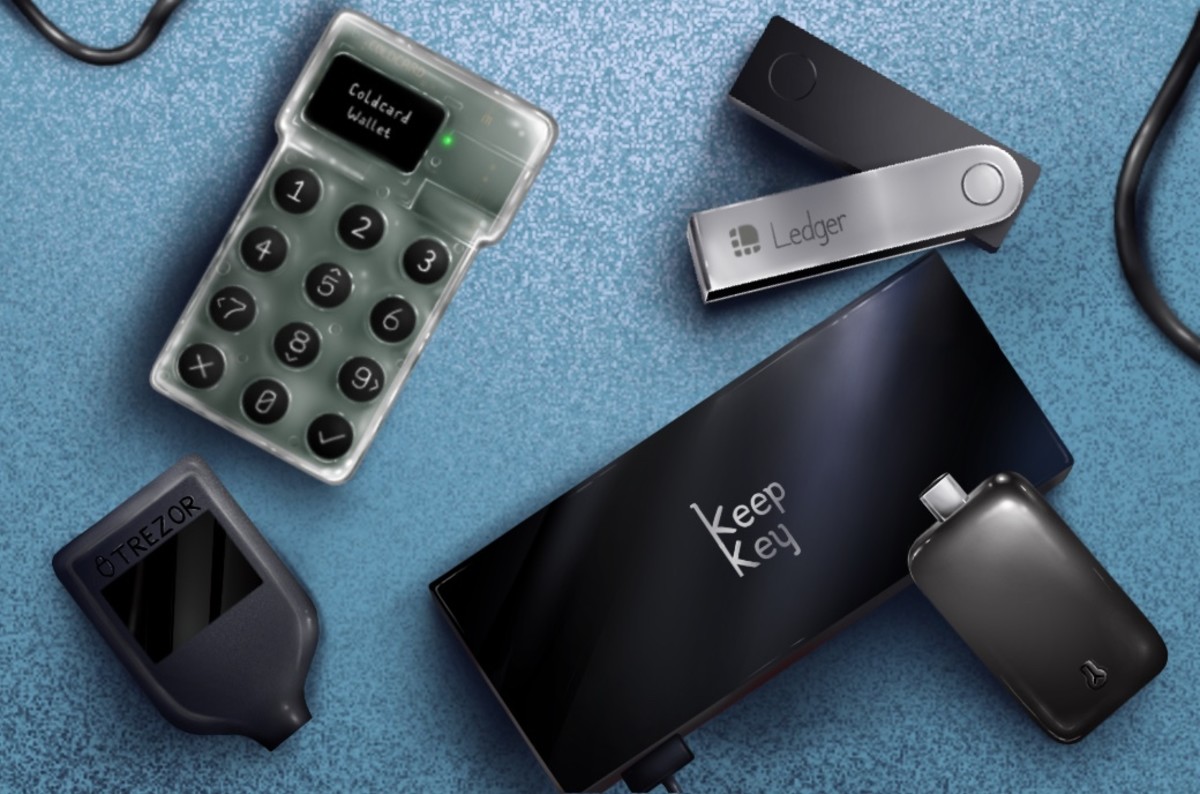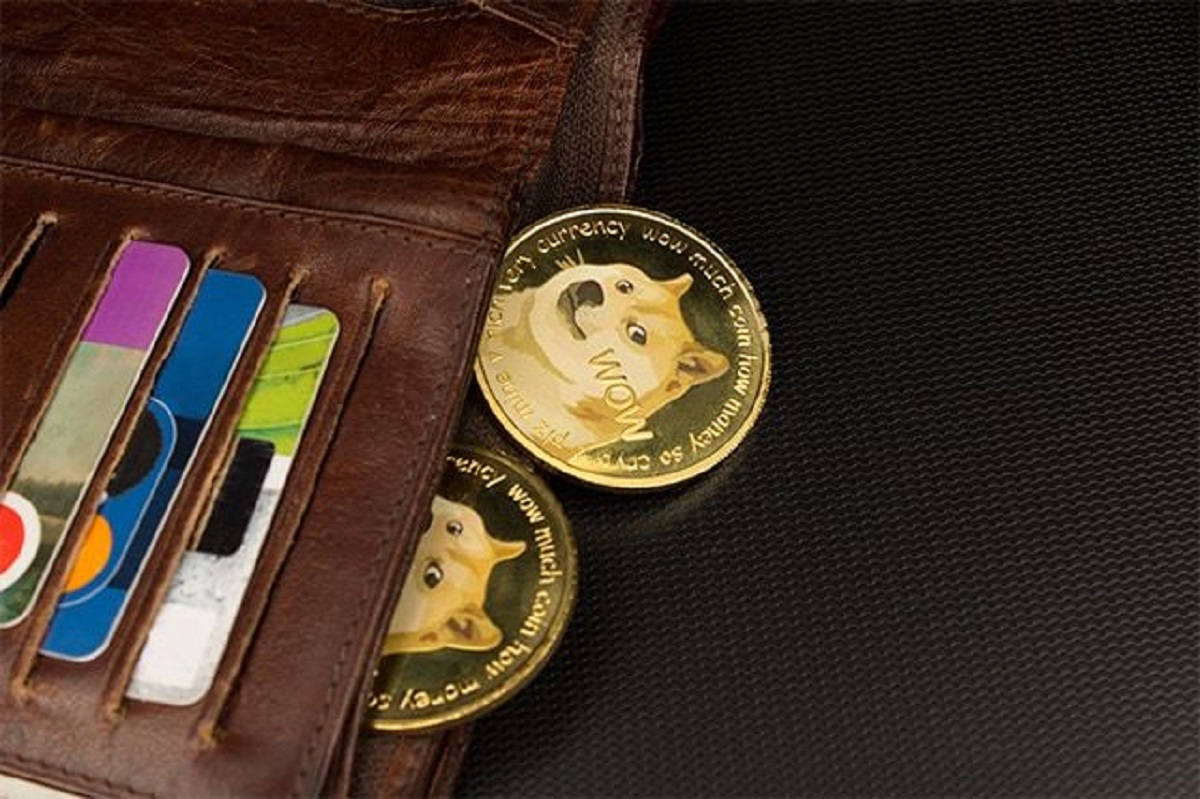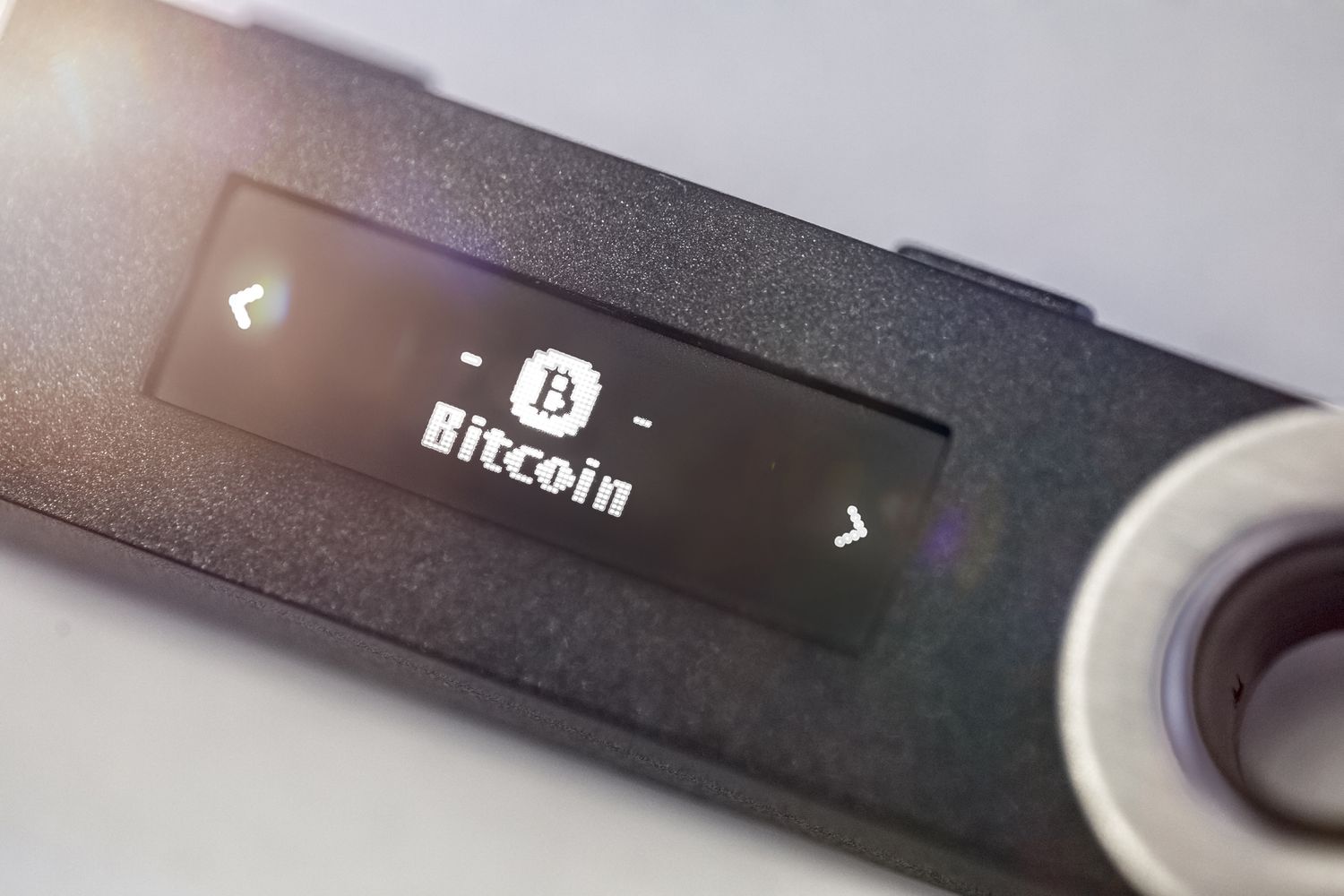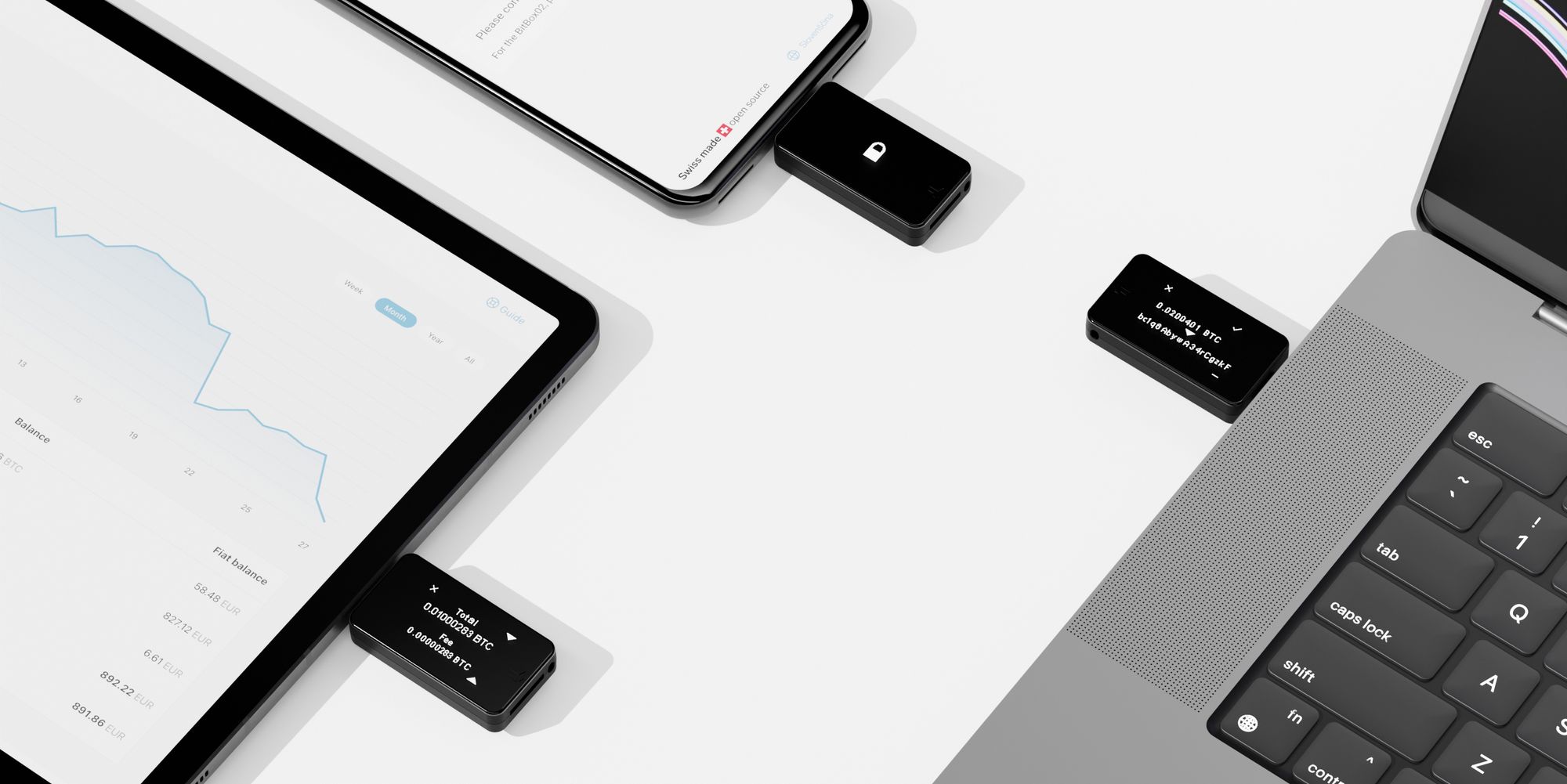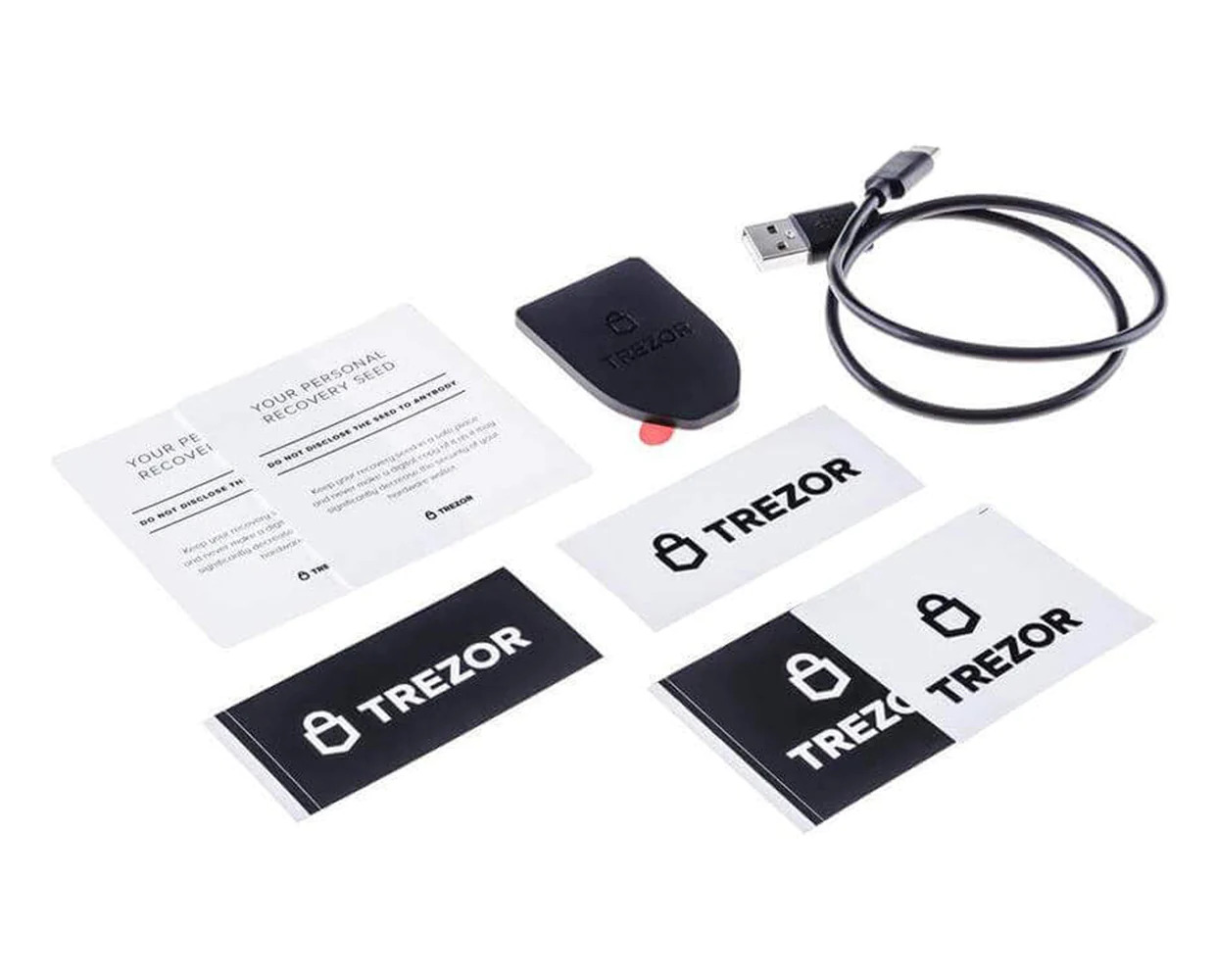Introduction
When it comes to storing cryptocurrency securely, a hardware wallet is considered the gold standard. In the world of digital assets, where hackers and cybercriminals constantly pose a threat, keeping your crypto safe is of utmost importance. A hardware wallet provides an offline storage solution that ensures the protection of your private keys, keeping them safe from online vulnerabilities. But what exactly is a hardware wallet, and why should you consider using one?
A hardware wallet is a physical device that securely stores your private keys offline. It is designed to be resistant to hacking attempts and provides an extra layer of security for your cryptocurrency holdings. By keeping your private keys offline, away from potential internet threats, a hardware wallet significantly reduces the risk of your funds being compromised. Instead of relying on software wallets or online exchanges, where your private keys are stored on a connected device or in the cloud, a hardware wallet ensures that your keys never leave the device.
The popularity of hardware wallets has increased as people recognize the importance of protecting their digital assets. With a rising number of cryptocurrency investors and frequent headlines of exchange hacks, the demand for secure storage solutions has surged. Hardware wallets have gained trust and credibility among cryptocurrency enthusiasts due to their robust security features and proven track record.
In this guide, we will explore the benefits of using a hardware wallet and the factors you should consider when choosing the best one for your needs. We will also compare some of the most popular hardware wallets currently available, including the Ledger Nano S, Trezor One, KeepKey, Coldcard Wallet, and BitBox02.
By the end of this guide, you’ll have a comprehensive understanding of hardware wallets and be able to make an informed decision about which one is right for you. Let’s dive in and discover the world of hardware wallets and how they can safeguard your cryptocurrency investments.
What is a hardware wallet?
A hardware wallet is a physical device that securely stores your private keys offline, providing a highly secure way to store and manage your cryptocurrencies. Unlike software wallets or online exchanges, which are vulnerable to hacking and phishing attacks, a hardware wallet offers a robust level of protection by keeping your private keys isolated from internet-connected devices.
Private keys are essential for accessing and transferring your cryptocurrencies. They are essentially the digital signatures that prove you are the owner of your crypto assets. With a hardware wallet, your private keys are stored securely within the device and never exposed to the internet, reducing the risk of unauthorized access.
Using a hardware wallet involves a simple process. First, you connect the device to a computer or smartphone via USB or Bluetooth. Next, you verify and authorize transactions on the device itself. The private keys used to sign the transaction are stored securely within the hardware wallet, ensuring that they are never exposed to potentially compromised devices.
The hardware wallet provides an added layer of security through its ability to generate and securely store private keys offline. This means that even if your computer or smartphone is infected with malware, hackers would not be able to access your private keys unless they physically have the hardware wallet in their possession.
Furthermore, hardware wallets often come with a display screen, allowing you to verify transaction details directly on the device before authorizing them. This feature ensures that you have full control over your transactions and mitigates the risk of falling victim to phishing attacks or fraudulent transactions.
The offline nature of hardware wallets also protects against attacks like keyloggers, which can record keystrokes on your computer to capture your private keys. Since the private keys never leave the hardware wallet, it becomes virtually impossible for malicious actors to obtain them through traditional hacking methods.
In summary, a hardware wallet is a physical device that provides an extra layer of security for storing and managing your cryptocurrencies. By keeping your private keys offline and requiring physical verification, hardware wallets offer a highly secure solution for protecting your digital assets from potential threats.
Why use a hardware wallet?
Using a hardware wallet for storing your cryptocurrencies offers several advantages over other methods of storage. Let’s delve into the key reasons why you should consider using a hardware wallet to safeguard your digital assets.
1. Enhanced security: One of the primary reasons to use a hardware wallet is the heightened security it provides. By keeping your private keys offline in a physical device, a hardware wallet eliminates the risk of online threats such as hacking, phishing, and malware. This offline storage ensures that your private keys are not exposed to potentially compromised devices or vulnerable software wallets, providing you with peace of mind and protecting your assets.
2. Protection against physical theft: Unlike software wallets or exchanges that rely on passwords or passphrases for access, hardware wallets add an extra layer of protection against physical theft. These devices come with PIN codes that you need to enter before accessing your cryptocurrency holdings. Even if someone gains unauthorized access to your hardware wallet, they still need to know your unique PIN to access your private keys and make transactions.
3. Verification of transactions: Hardware wallets often feature built-in screens that allow you to review and verify transaction details directly on the device itself. This prevents any tampering with transaction information and provides an added layer of security against fraudulent activities. By confirming the transaction details on the hardware wallet’s display, you can ensure that you are sending your cryptocurrencies to the intended recipient without any malicious alterations.
4. Easy backup: Hardware wallets typically come with a recovery phrase (also known as a seed phrase or backup phrase), which is a series of words that can be used to restore access to your funds in case your hardware wallet is lost, damaged, or stolen. This backup phrase serves as a secure and convenient way to recover your private keys and access your funds on a new device. It is important to store this recovery phrase in a safe and separate location to prevent unauthorized access.
5. Compatibility and versatility: Hardware wallets are compatible with a wide range of cryptocurrencies, making them a versatile solution for managing multiple digital assets. They often support popular cryptocurrencies like Bitcoin, Ethereum, and others, allowing you to securely store and manage different coins in one device. This eliminates the need for multiple wallets and provides a convenient and streamlined experience.
In summary, using a hardware wallet offers enhanced security, protection against physical theft, transaction verification, easy backup options, and compatibility with various cryptocurrencies. These advantages make a hardware wallet an ideal choice for individuals who value the security and protection of their digital assets. By choosing a reputable hardware wallet, you can ensure the safety and longevity of your cryptocurrency holdings for the long term.
Factors to consider when choosing a hardware wallet
When it comes to choosing a hardware wallet to secure your cryptocurrency holdings, there are several important factors to consider. By evaluating these factors, you can make an informed decision and select a hardware wallet that best meets your security needs and preferences. Let’s explore these key factors in detail.
1. Security features: The primary purpose of a hardware wallet is to provide a secure storage solution for your private keys. When evaluating hardware wallets, consider the security features they offer. Look for features like secure chip architecture, PIN code protection, passphrase support, and two-factor authentication. These features enhance the overall security of the device and protect your private keys from unauthorized access.
2. Supported cryptocurrencies: Different hardware wallets support various cryptocurrencies. Before making a purchase, ensure that the hardware wallet you choose supports the cryptocurrencies you plan to store. While most hardware wallets support major cryptocurrencies like Bitcoin and Ethereum, not all may support certain altcoins or lesser-known cryptocurrencies.
3. User interface and ease of use: Consider the user interface and ease of use of the hardware wallet. Look for devices with intuitive interfaces and clear instructions to make the setup and transaction process hassle-free. A user-friendly hardware wallet ensures a smooth experience and reduces the chances of making costly mistakes during transactions.
4. Backup and recovery options: Accidents happen, and it is crucial to have a backup plan in case your hardware wallet is lost, damaged, or stolen. Verify that the hardware wallet you choose supports a secure backup and recovery mechanism, such as a recovery phrase (seed phrase). This backup option allows you to restore access to your funds on a new device, ensuring you won’t lose your cryptocurrencies if your hardware wallet becomes inaccessible.
5. Open-source and community support: Consider hardware wallets that have open-source firmware. Open-source hardware wallets allow users to review the code for security and transparency. Additionally, hardware wallets with active communities foster ongoing development and support, ensuring that security vulnerabilities are addressed promptly and new features are continually added.
6. Device compatibility: Ensure that the hardware wallet is compatible with the operating systems and devices you plan to use. Some hardware wallets support desktop operating systems like Windows, macOS, or Linux, while others offer mobile app support for iOS and Android. Check the hardware wallet’s system requirements to ensure it aligns with your preferred devices.
7. Price and value for money: Hardware wallets come at various price points. Consider the price of the device in relation to the features offered to determine its value for money. While a higher price may indicate more advanced security features or a larger display, it is important to consider your specific needs and budget when making a decision.
By carefully evaluating these factors, you can choose a hardware wallet that aligns with your security requirements, cryptocurrency preferences, ease of use, and budget. Remember, investing in a reliable and secure hardware wallet is a crucial step in safeguarding your digital assets from potential threats.
Comparison of popular hardware wallets
There are several popular hardware wallets available in the market, each with its own unique features and capabilities. Let’s compare some of the most popular hardware wallets to help you determine which one is the best fit for your cryptocurrency storage needs.
1. Ledger Nano S
The Ledger Nano S is a widely recognized hardware wallet known for its robust security features. It supports a wide range of cryptocurrencies and offers a simple and user-friendly interface. The device features a compact design with a small screen for transaction verification. It utilizes a secure chip and PIN code protection for enhanced security. The Ledger Nano S is a solid choice for beginners and experienced users alike.
2. Trezor One
Trezor One is another reputable hardware wallet that offers high levels of security and supports a wide range of cryptocurrencies. It features a straightforward interface and a physical keypad for inputting PIN codes and authorizing transactions. Trezor One is known for its open-source firmware, providing transparency and community-supported development. It is an excellent hardware wallet for those who value simplicity and security.
3. KeepKey
KeepKey is a hardware wallet with an emphasis on elegant design and ease of use. It offers a large color display for transaction verification, making it particularly user-friendly. KeepKey supports a limited number of cryptocurrencies but covers major ones like Bitcoin, Ethereum, and Litecoin. Despite supporting fewer cryptocurrencies, KeepKey stands out with its sleek and intuitive interface.
4. Coldcard Wallet
The Coldcard Wallet is known for its focus on extreme security and privacy. It is designed for advanced users and supports Bitcoin and select altcoins. Its unique features include a microSD card slot for offline signing, air-gapped operation, and complex PIN code security measures. The Coldcard Wallet is a top choice for users who prioritize maximum security and privacy for their Bitcoin holdings.
5. BitBox02
The BitBox02 is a compact and minimalist hardware wallet that prioritizes simplicity and security. It supports a wide range of cryptocurrencies and features a touch sensor for easy and secure access. The BitBox02 is praised for its open-source firmware and transparent development process. It is an ideal choice for users seeking a sleek and user-friendly hardware wallet.
These are just a few examples of popular hardware wallets available in the market. When choosing a hardware wallet, consider factors such as security features, supported cryptocurrencies, user interface, backup options, and compatibility to find the one that aligns with your specific needs and preferences. It is recommended to thoroughly research and compare different hardware wallets before making a decision, as the security of your cryptocurrency holdings depends on choosing a trusted and reliable device.
Ledger Nano S
The Ledger Nano S is one of the most popular and widely used hardware wallets in the cryptocurrency community. Combining strong security features, broad cryptocurrency support, and a user-friendly interface, the Ledger Nano S is an excellent choice for both beginners and experienced users.
Security is a top priority for Ledger, and the Nano S is designed with multiple layers of protection. The device utilizes a secure chip that stores and secures private keys, ensuring that they never leave the device. Additionally, the Nano S supports a PIN code system, requiring users to enter a unique code to access their funds. This provides an additional barrier against unauthorized access, even if the device is lost or stolen.
The Ledger Nano S supports a wide range of cryptocurrencies, including major ones like Bitcoin, Ethereum, Ripple, and many more. With its extensive currency compatibility, users can securely store and manage multiple digital assets within a single device, eliminating the need for multiple wallets.
The user interface of the Ledger Nano S is simple and intuitive. The device has a small screen that displays transaction details, allowing users to verify and authorize transactions directly on the device. This feature provides an important layer of protection against potential phishing attacks or fraudulent transactions, as users can visually confirm the details before approving.
Another advantage of the Ledger Nano S is its compatibility with Ledger Live, an all-in-one companion application that allows users to manage their cryptocurrencies easily. Ledger Live provides a seamless and convenient interface for checking balances, sending and receiving funds, and installing new cryptocurrency apps on the device. The integration between the hardware wallet and Ledger Live ensures a smooth user experience.
Although the Ledger Nano S offers robust security and functionality, it is worth noting that it has limited storage space compared to newer models. This means that users may need to manage the number of applications installed on the device, as only a certain number of cryptocurrency apps can be stored at a time.
In summary, the Ledger Nano S is a highly regarded hardware wallet that provides strong security, broad cryptocurrency support, and a user-friendly interface. It offers peace of mind by keeping private keys offline and providing a secure environment for managing digital assets. Whether you are a beginner or an experienced user, the Ledger Nano S is a reliable choice for securely storing and managing your cryptocurrency holdings.
Trezor One
Trezor One is a reputable hardware wallet that has gained popularity for its security features, versatility, and user-friendly interface. Designed with a focus on simplicity and reliability, the Trezor One is an excellent option for anyone looking to securely store and manage their cryptocurrencies.
One of the standout features of the Trezor One is its emphasis on security. The device utilizes a secure chip to protect and store private keys, ensuring that they are never exposed to potentially compromised devices. Additionally, the Trezor One supports passphrase encryption, allowing users to add an extra layer of security to their device. This feature provides protection against physical theft and unauthorized access to funds, even if the device falls into the wrong hands.
The Trezor One is compatible with a wide range of cryptocurrencies, including popular options such as Bitcoin, Ethereum, Litecoin, and more. Its versatility in supporting numerous digital assets makes it an ideal choice for users with diverse cryptocurrency portfolios. Users can conveniently manage and store multiple cryptocurrencies within a single device, eliminating the need for separate wallets for each coin.
One of the advantages of the Trezor One is its user-friendly interface. The device features a physical keypad that allows users to enter their PIN code directly on the device itself, ensuring that it is not vulnerable to keyloggers or other security threats. The straightforward interface simplifies the setup process and transaction signing, making it accessible even to individuals with limited technical knowledge or experience.
Transparency and community support are also notable aspects of the Trezor One. The device’s firmware is open-source, allowing users to review the code for security and assurance. Trezor actively encourages community involvement, which contributes to ongoing development, bug fixes, and security enhancements. This engagement with the user community ensures that the Trezor One remains reliable and up to date with the latest security standards.
It is worth mentioning that the Trezor One has a smaller screen compared to newer hardware wallet models. While this does not affect the overall functionality or security of the device, it does limit the amount of information that can be displayed at once. However, the Trezor One compensates for this limitation by utilizing simple and straightforward menus that guide users through the necessary steps.
In summary, the Trezor One is a versatile and user-friendly hardware wallet that provides robust security and supports a wide range of cryptocurrencies. Its emphasis on simplicity and transparency, along with its strong community support, makes it an excellent choice for individuals looking to securely manage their cryptocurrency holdings. With the Trezor One, users can have peace of mind knowing that their digital assets are protected by top-notch security measures.
KeepKey
KeepKey is a hardware wallet that stands out for its sleek design, ease of use, and commitment to security. With its user-friendly interface and focus on simplicity, KeepKey offers a reliable solution for securely storing and managing cryptocurrencies.
One of the notable features of the KeepKey is its elegant and durable hardware design. The device sports a large and vibrant color display, providing a clear and intuitive user experience. The touchscreen interface makes navigation and transaction verification a breeze, and the overall build quality of the device adds a premium feel.
While KeepKey supports a more limited range of cryptocurrencies compared to some other wallets, it covers major cryptocurrencies such as Bitcoin, Ethereum, Litecoin, and a few others. The device provides a seamless experience for managing these supported assets, allowing users to conveniently send, receive, and monitor their balances without utilizing multiple wallets.
Security is a paramount concern for KeepKey, and the device incorporates multiple layers of protection. KeepKey uses a PIN code system to guard against unauthorized access, requiring users to enter a unique code on the device itself. The private keys are stored securely within the device, remaining offline to mitigate the risk of online threats. Additionally, KeepKey provides an option for passphrase encryption, adding an extra layer of security to the device in case it falls into the wrong hands.
Setting up and using the KeepKey is a straightforward process. Users can quickly get started by connecting the device to their computer or mobile device using the provided USB cable. KeepKey works seamlessly with the intuitive and user-friendly interface of the KeepKey Client application. This application allows users to manage their cryptocurrencies, view balances, and initiate transactions directly from their computers, adding convenience and ease of use to the overall experience.
While KeepKey offers a robust and user-friendly experience, it is worth noting that it supports fewer cryptocurrencies compared to some other hardware wallets. However, if the supported cryptocurrencies align with your portfolio and its streamlined interface appeals to you, KeepKey remains an excellent choice for securely managing your digital assets.
In summary, KeepKey is a sleek, user-friendly, and secure hardware wallet that offers a seamless experience for managing cryptocurrencies. With its intuitive interface, large color display, and emphasis on security, KeepKey provides peace of mind and a stylish solution for users seeking an elegant hardware wallet to securely store and manage their digital assets.
Coldcard Wallet
The Coldcard Wallet stands out as a hardware wallet designed specifically for Bitcoin enthusiasts who prioritize extreme security and privacy. With its unique features and focus on robust protection, the Coldcard Wallet offers an unmatched level of security for managing Bitcoin holdings.
One of the notable features of the Coldcard Wallet is its air-gapped operation. This means that the device is not connected to the internet, ensuring that it is completely isolated from online threats. By keeping the device offline, the Coldcard Wallet significantly reduces the risk of unauthorized access and protects against potential attackers attempting to leverage network vulnerabilities.
The Coldcard Wallet also boasts a range of advanced security measures. It incorporates a secure element chip, which provides additional protection against physical and side-channel attacks. The device supports an optional passphrase encryption feature, allowing users to further secure their funds with an additional layer of protection against unauthorized access.
Transaction approval on the Coldcard Wallet is conducted via the device’s large and clear display screen. The transaction details and addresses are shown directly on the device, enabling users to carefully review and verify each transaction before approving it. This verification step acts as a safeguard against potential phishing attacks or forged transactions, ensuring that users have full control over their funds.
The Coldcard Wallet is designed with the Bitcoin power user in mind. It supports advanced features such as multisignature (multisig) transactions and compatibility with popular Bitcoin wallets like Electrum. These features make it a valuable tool for users seeking more intricate and sophisticated Bitcoin transactions while maintaining a high level of security.
However, it’s important to note that the Coldcard Wallet’s advanced security features and functionality may result in a steeper learning curve compared to other hardware wallets. While it may be more suitable for experienced Bitcoin users, the Coldcard Wallet provides comprehensive documentation and a supportive user community to assist users in effectively utilizing its advanced features.
In summary, the Coldcard Wallet is a hardware wallet that prioritizes extreme security and privacy for Bitcoin holders. Its air-gapped operation, advanced security measures, and compatibility with Bitcoin wallet software make it an ideal choice for users who require uncompromising protection for their Bitcoin holdings. While it may have a steeper learning curve, the Coldcard Wallet offers unparalleled security features for experienced Bitcoin users seeking to maximize the protection of their digital assets.
BitBox02
The BitBox02 is a hardware wallet that is highly regarded for its sleek design, user-friendly interface, and emphasis on security. Offering a seamless combination of simplicity and robust protection, the BitBox02 is an excellent choice for users seeking a secure and easy-to-use hardware wallet.
One of the standout features of the BitBox02 is its minimalist and compact design. The device has a sleek and lightweight build, making it highly portable and convenient to carry around. Despite its small form factor, the BitBox02 delivers impressive security features to safeguard your digital assets.
Security is a top priority for the BitBox02. The device is equipped with a secure chip that ensures the protection of your private keys. It features a touch slider that allows users to enter their PIN code directly on the device, enhancing security against potential keyloggers or other malicious attempts to capture sensitive information. The private keys remain stored securely within the device, providing offline storage and reducing the risk of online threats.
The BitBox02 supports a wide range of cryptocurrencies, making it a versatile tool for managing diverse digital asset portfolios. Major cryptocurrencies such as Bitcoin, Ethereum, and Litecoin are supported, allowing users to securely store and transact with multiple coins within a single device.
The BitBox02 boasts an intuitive and user-friendly interface that simplifies the setup process and makes managing cryptocurrencies easy. It utilizes the BitBoxApp, a desktop and mobile application that enables users to conveniently manage their digital assets. The app provides a clear and straightforward interface for checking balances, sending and receiving funds, and managing transactions.
Open-source firmware is an important aspect of the BitBox02. This transparency allows users to audit the code and ensure that the software is secure and trustworthy. The BitBox02 project actively engages with the user community and welcomes contributions, which fosters ongoing development and emphasizes the importance of security and user feedback.
Despite its many features and robust security, the BitBox02 does have a limitation in terms of the number of supported cryptocurrencies when compared to some other hardware wallets. However, it covers a significant number of popular coins, making it suitable for the majority of users.
In summary, the BitBox02 is a sleek and highly secure hardware wallet that offers an intuitive and user-friendly experience. Its compact design, comprehensive security features, versatile cryptocurrency support, and open-source nature make it a popular choice among users seeking a reliable hardware wallet for managing their digital assets securely. With the BitBox02, you can confidently protect and manage your cryptocurrencies, knowing that your private keys remain safeguarded within a trusted device.
Conclusion
Choosing the right hardware wallet is a critical step in safeguarding your cryptocurrencies from potential threats and ensuring the security of your digital assets. With a wide range of options available, it is important to consider factors such as security features, supported cryptocurrencies, user interface, backup options, and device compatibility when making a decision.
The Ledger Nano S offers robust security, broad cryptocurrency support, and a user-friendly interface, making it an ideal choice for both beginners and experienced users. Trezor One provides simplicity, versatility, and strong community support, while the KeepKey impresses with its elegant design, ease of use, and emphasis on security.
The Coldcard Wallet stands out for its air-gapped operation, advanced security measures, and focus on extreme security and privacy for Bitcoin users. The BitBox02 offers a minimalist design, user-friendly interface, and comprehensive security features, making it a popular choice for users seeking simplicity and robust protection.
Ultimately, the choice of a hardware wallet should align with your specific needs, preferences, and the cryptocurrencies you intend to store. Consider the features and trade-offs of each wallet, prioritize your security requirements, and choose a wallet that offers a user experience that matches your level of expertise and technical comfort.
Remember to conduct thorough research on each hardware wallet and carefully evaluate their security measures, reputation, and user feedback before making a decision. When it comes to safeguarding your digital assets, it is essential to select a trusted and reputable hardware wallet that provides the necessary security measures to protect your private keys and ensure the safe management of your cryptocurrencies.
By selecting the right hardware wallet, you can have confidence in the security and protection of your digital assets, allowing you to navigate the world of cryptocurrencies with peace of mind. So, take the time to make an informed decision and choose a hardware wallet that suits your needs and prioritizes the security of your valuable cryptocurrencies.







